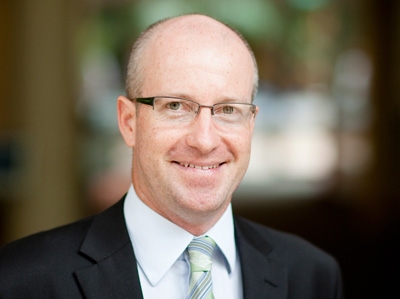
Date:
Location:
Speaker:
Abstract:
We recently discovered that a unique, very high grade of cellulose nanofibre can be readily and cost-effectively produced from endemic Australian spinifex grasses from the Triodia genus. These fascinating extremophile grasses, with over 20 million years of evolution, have presented us with a most unique source for nanocellulose. Our fibrillation process involves a mild pulping procedure followed by either a low mechanical energy treatment or a mild sulfuric acid hydrolysis. We have demonstrated that a high content of residucal hemicellulose and lignin in bleached and unbleached pulp results in superior cell wall deconstruction, and consequently, the production of longer and more flexible nanofibres. When benchmarked against the other leading academic and commercially available materials, spinifex nanofibres have the highest aspect ratio compared against nanofibres obtained through the mechanical or chemical treatments of the other sources of cellulose. This novelty means that our method of fibrillation, and more importantly, this source of cellulose (Triodia includes 69 species) have the potential to directly address the current technological bottlenecks that have so far limited the widespread translation of nanocellulose technology into more applications. This presentation will give an overview of our team’s research and technology development activities related to spinifex nanofibre production, with potential applications including ultrathin condoms and gloves, polymer composites, enhanced recycled paper and board products and rigid polyurethane insulation foams (RPUF). It will also introduce a landmark umbrella agreement and commercial partnership between The University of Queensland (UQ) and The lndjalandji-Dhidhanu traditional owner group, which has provided a framework accommodating shared future commercial benefits and Indigenous economic development from the generated project IP.
Bio:
Professor Darren Martin is a Senior Group Leader in the Australian Institute for Bioengineering and Nanotechnology (AIBN) at The University of Queensland, Brisbane, Australia. He is recognised as a global leader in translational materials science and engineering and has published over 100 book chapters and peer reviewed papers, plus 7 patents, and attracted over $14M in research funding since 1999. From 1993-1999 his research contributed to the spinoff Aortech Biomaterials, commercialising new polyurethane pacemaker insulation from the Cooperative Research Centre (CRC) for Cardiac Technology. Today several million pacemakers had been implanted by St Jude Medical (now Abbott) using these biostable polyurethane materials. Since 2006, he has also been the founder and Chief Scientific Officer for start-up company TenasiTech Pty Ltd, which is commercialising a polymer nanocomposites platform as applied to large polyurethane, acrylic and polamide markets and applications. TenasiTech is the first Queensland start-up to receive Commercialisation Australia funding; has won the prestigious iLab Prize in the national Enterprize Competition; and received the 2010 UQ EAIT Faculty Commercialisation award. Professor Martin’s research operates at the nexus of three key themes; (1) Strong fundamental materials science with global performance benchmarking; (2) Safe biomaterials and nanomaterials; (3) Scalable advanced manufacturing. His efforts in these areas during the past two decades have contributed to two successful start-ups, numerous prototypes and products, and a strong platform for globally competitive nanocomposites innovation. More recently his team have discovered and patented high aspect ratio cellulose nanofibrils derived from abundant Australian arid grasses, or “spinifex”, and have begun scaling this technology up and commencing the validation process for several commercial opportunities, including super-thin latex condoms and gloves, as well as high performance additives for the recycled paper industry.
Sponsored by the Mellichamp Academic Initiative in Sustainability



